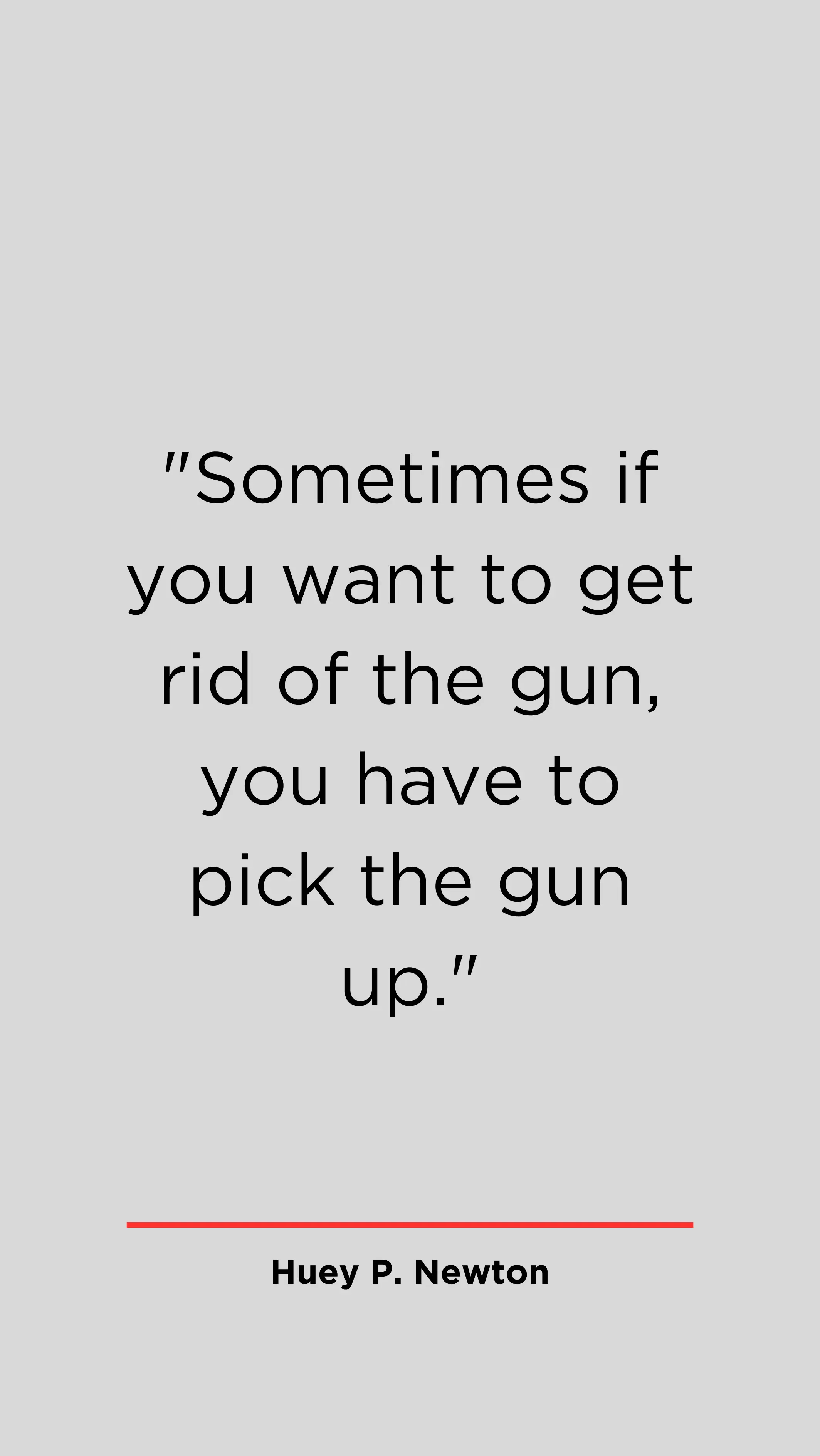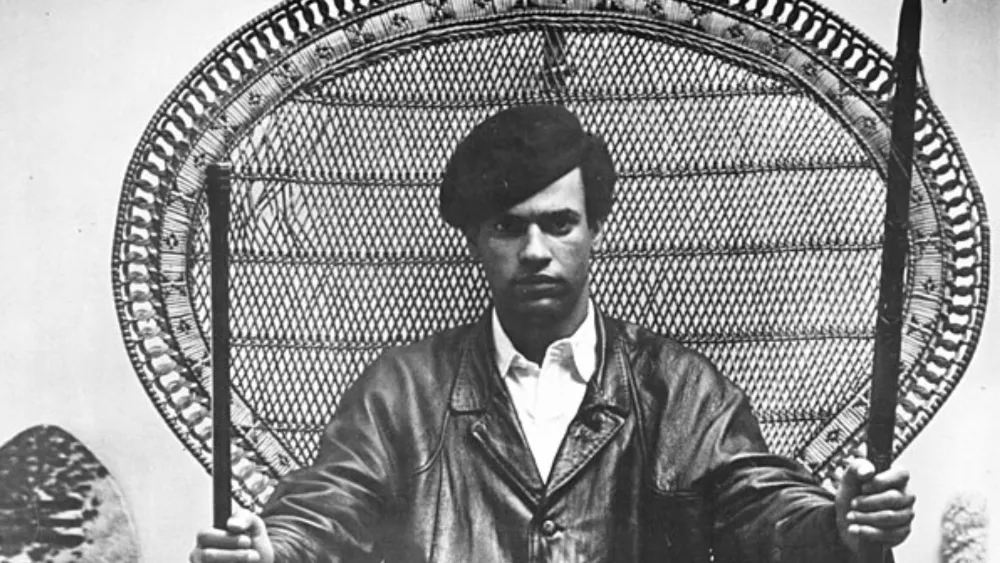Back in 1966, Huey P. Newton, along with Bobby Seale, established the left-wing Black Panther Party for Self-Defense in Oakland, California, which played a pivotal role in the Black Power movement.
The organization gained notoriety for its controversial language and militant approach, capturing public attention. Newton’s life was marked by numerous legal troubles, and he even sought refuge in Cuba before eventually returning to the United States to earn his doctorate.
Unfortunately, drug and alcohol addiction plagued him in his later years. So, he met a tragic end in 1989 when someone killed him in Oakland. This unruly journey vividly portrayed the ups and downs of his life’s path.
Background and Early Life of Huey P Newton
Huey P Newton was born on February 17, 1942, in Monroe, Louisiana. He played a significant role in founding the Black Panther Party. This is a significant African American political organization and emerged as a prominent figure in the 1960s Black Power movement.
As the youngest of seven siblings, Newton’s family relocated to Oakland, California, when he was just a toddler. Despite his later claims of being close to his family, his early life was fraught with challenges. These struggles manifested in his disruptive behavior both in school and on the streets.
During his teenage years, Newton faced multiple suspensions and encountered the law. However, he underwent a transformative educational journey. Melvin, his older brother who had achieved a master’s degree in social work, inspired him.
Despite graduating from high school in 1959 with rudimentary literacy skills, Newton took it upon himself to become his own teacher. Through his determination and effort, he mastered the art of reading.
The Birth of the Black Panther Party
The party was founded in response to the pervasive police brutality and systemic racism that African Americans in the U.S. endured. The Panthers took a different tack from other civil rights activists of the era. They include prominent people such as Martin Luther King Jr., who supported nonviolent resistance.
The Black Panther Party’s Ten-Point Program called for fundamental changes in the country, including an end to police brutality and the immediate release of African Americans from jail.
They believed in arming themselves to protect their communities from police violence, a stark contrast to the nonviolent tactics of other civil rights movements.
One of the most iconic images of the Black Panthers is of Newton and other members patrolling the streets with shotguns and police scanners. This visible display of self-defense sent a powerful message. African Americans would no longer tolerate being oppressed and abused by the police.
The Panthers’ activities included community organizing, free breakfast programs for children, and medical clinics, which endeared them to the communities they served.
The Black Panther Party’s Turbulent Path
The Black Panther Party’s radical approach and open carry of firearms quickly garnered the attention of law enforcement and the federal government. This led to a series of confrontations, most notably the shootout between Newton and Oakland police officer John Frey in 1967.
Newton was arrested and convicted of manslaughter, sparking widespread protests and demonstrations.
Newton’s time in prison only solidified his determination to fight for civil rights. His supporters rallied behind him, demanding his release. The rallying cry of “Free Huey!” symbolized the broader struggle against racial injustice.
Following the overturning of two convictions due to jury misconduct, they released Newton from prison in 1970.
However, the Black Panther Party had internal conflicts and controversies. Infighting, legal troubles, and external pressures strained the organization, leading to its eventual decline in the mid-1970s.
Critics scrutinized Newton’s leadership style and decisions. Therefore, it resulted in a tarnished reputation for the party.
Huey P Newton: Inspiring Contemporary Activism
Indeed, Huey Newton’s legacy stands as a testament to the enduring impact of his work and the Black Panther Party. It resonates in numerous ways, and his influence on the fight for racial justice is unmistakable.
Newton’s legacy is not confined to the era in which he lived; rather, it transcends time and remains a source of inspiration for contemporary activists and advocates. The issues he sought to address, such as systemic racism, police brutality, and socioeconomic disparities, continue to plague American society.
Newton’s unyielding dedication to confronting these systemic problems serves as a model for those who persist in their efforts to bring about meaningful change.
The Black Panther Party’s philosophy of self-defense and community empowerment has made a lasting impact on generations of activists who followed. It empowered African Americans to assert their rights and to be proactive in addressing the issues that affected their communities.
This approach remains a powerful and relevant concept. This is because it underlines the importance of self-advocacy. It also shared the value of community organization in the face of adversity.
Revolutionary Community Initiatives
The Black Panther Party’s commitment to community-based programs was a transformative force in addressing the socioeconomic disparities that had long plagued marginalized communities.
One of their most notable initiatives was the establishment of free breakfast programs for children in underserved areas. These programs, often operating in schools and churches, ensured that children received a nutritious meal before starting their school day. They not only filled empty stomachs but also underlined the importance of education and community support.

The Black Panther Party’s Turbulent Journey
Huey Newton’s life and legacy are complex. It reflects the turbulent era in which he lived and the challenges he faced. He was a passionate and determined leader who sought to confront systemic racism. He also addressed inequality through bold means.
Although the Black Panther Party was surrounded by controversy and conflict, it made a lasting impact on the fight for civil rights and social justice in the United States. Huey Newton’s commitment to self-defense, community empowerment, and activism continues to inspire those who seek to address racial injustice and inequality in our society.











